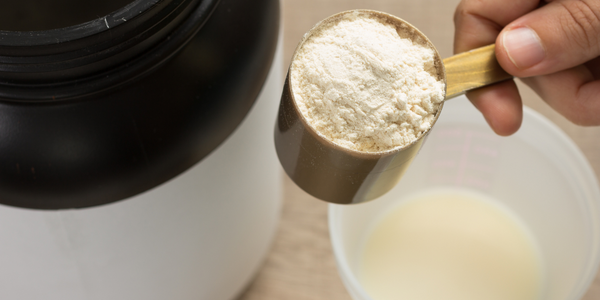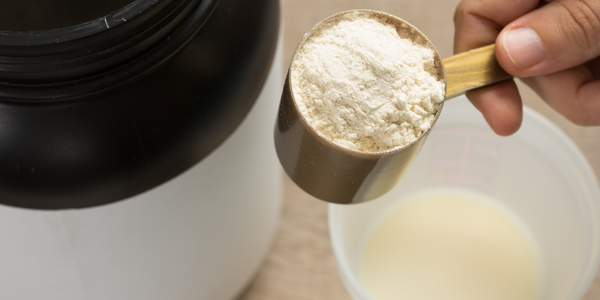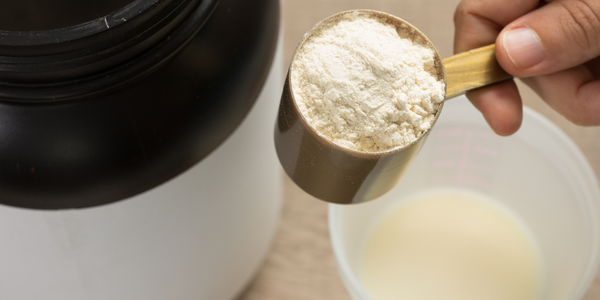Ashwagandha has been a staple in Ayurvedic medicine for centuries, known for its adaptogenic properties that help the body manage stress. But in recent years, this powerful herb has gained popularity among fitness enthusiasts and athletes too for its impact on muscle growth. If you’re looking for a natural way to enhance your strength, endurance, and recovery, ashwagandha might be the missing piece in your fitness routine.
What is Ashwagandha?
Ashwagandha (Withania somnifera) is a small shrub with yellow flowers native to India. It’s commonly used as a supplement to support stress reduction, hormone balance, and immune function. However, the most effective part of the plant for supplementation is its root, as it contains the highest concentration of beneficial compounds called withanolides (NIH). These bioactive compounds are responsible for ashwagandha’s muscle-boosting and stress-reducing effects.
How Does Ashwagandha Support Muscle Growth?
Muscle growth occurs when muscle fibers repair and grow after being subjected to resistance training. Several factors influence muscle development, including protein synthesis, hormone levels, and recovery. Ashwagandha plays a role in all these areas, making it a valuable addition to a fitness regimen.
1. Boosts Muscle Strength
Ashwagandha enhances muscle performance, allowing for more effective workouts. Studies show that it improves strength and power, enabling individuals to lift heavier weights and perform high-intensity exercises with greater ease (NIH). A study involving resistance-trained individuals showed that those supplementing with ashwagandha experienced a significant increase in their bench press and leg extension strength compared to those who didn’t take the supplement. [NIH]
2. Enhances Muscle Recovery
Intense workouts cause muscle damage, leading to soreness and inflammation. While this is a natural part of muscle development, excessive inflammation can slow recovery. Ashwagandha has been shown to reduce levels of creatine kinase, an enzyme released when muscles undergo damage, indicating it can promote faster healing. By reducing oxidative stress and inflammation, ashwagandha allows for more consistent training sessions. [NIH]
3. Increases Testosterone Levels
Testosterone is a critical hormone for muscle growth, as it supports protein synthesis and muscle repair. Ashwagandha has been shown to naturally support healthy testosterone levels, making it easier for the body to build and maintain muscle mass. (NIH)
4. Reduces Cortisol and Supports Stress Management
Cortisol, commonly known as the stress hormone, can hinder muscle growth by breaking down muscle tissue. Chronic stress leads to elevated cortisol levels, which can counteract the benefits of exercise by promoting muscle degradation. Ashwagandha helps regulate cortisol levels, reducing stress-induced muscle loss and enhancing overall recovery.[NIH]
5. Improves Endurance and Stamina
Building muscle isn’t just about lifting weights; endurance and stamina also play a crucial role. Ashwagandha has been found to enhance physical performance, helping individuals sustain longer and more intense training sessions without premature fatigue. [NIH] It works by improving oxygen utilization and cardiovascular efficiency, making it beneficial for both strength training and endurance-based activities such as running, cycling, and high-intensity interval training (HIIT).
How to Take Ashwagandha for Muscle Growth
If you’re considering adding ashwagandha to your routine, here are a few things to keep in mind:
-
Recommended Dosage: Taking 300–600 mg of a high-quality, standardized extract of ashwagandha (such as KSM-66) per day is effective for improving strength, recovery, and endurance.
-
Best Time to Take It: You can take ashwagandha in the morning to help manage cortisol levels throughout the day, or before bed to support recovery and sleep quality.
-
Form of Ashwagandha: Ashwagandha is available in various forms, including capsules, powders, and tinctures. However, one of the most effective forms for absorption is the melts format, which delivers the herb sublingually (under the tongue), allowing for faster and more efficient uptake.
-
Consistency Matters: Like most natural supplements, ashwagandha works best when taken consistently over time. Most studies observe benefits after 6–8 weeks of daily supplementation.
Who Should Use Ashwagandha for Muscle Growth?
Ashwagandha is generally well-tolerated and safe for most people. However, it is particularly beneficial for:
-
Athletes and bodybuilders looking to enhance strength and recovery.
-
Individuals under high stress who may experience muscle breakdown due to elevated cortisol levels.
-
Those struggling with low testosterone levels and looking for natural support.
-
People aiming to improve endurance and workout performance in both resistance training and cardiovascular activities.
Conclusion
Ashwagandha is more than just an ancient herbal remedy; it is a scientifically supported supplement that enhances muscle growth, boosts strength, accelerates recovery, and improves endurance. For maximum effectiveness, choose a supplement that contains KSM-66, the most potent form of ashwagandha, derived from the root with a high concentration of withanolides.
For faster absorption and better results, consider taking ashwagandha in a melts format, which bypasses digestion for quicker uptake. When combined with a balanced diet, proper training, and sufficient rest, ashwagandha can be a game-changer in achieving optimal muscle growth and peak performance.

























